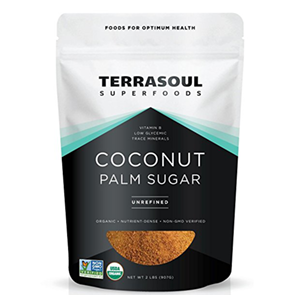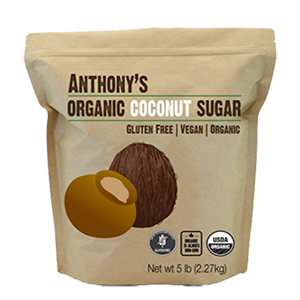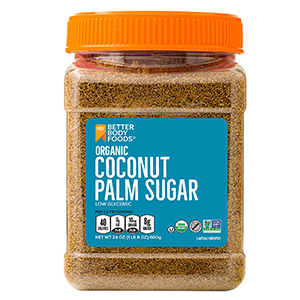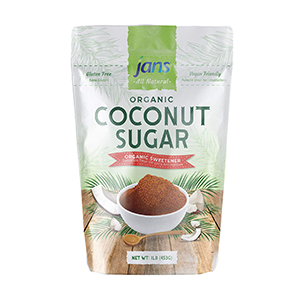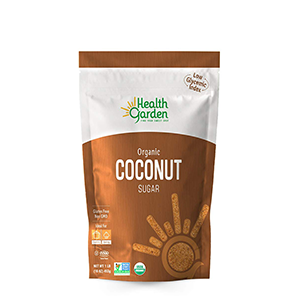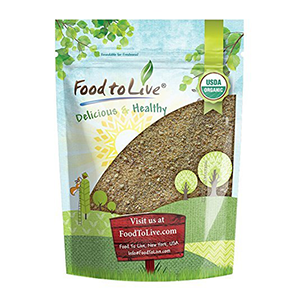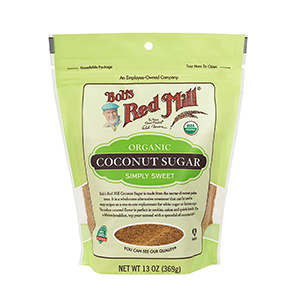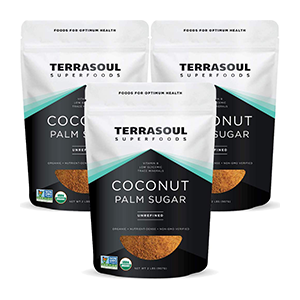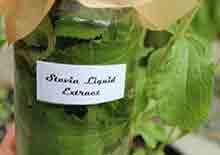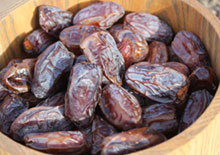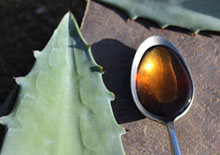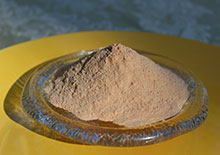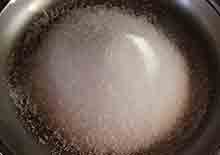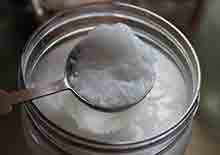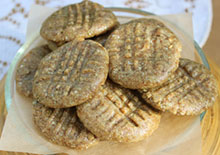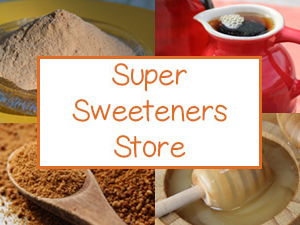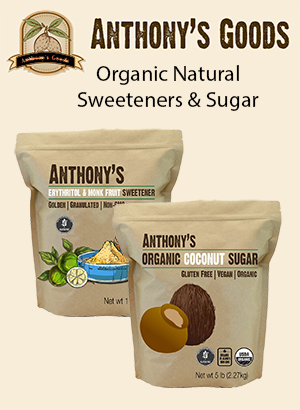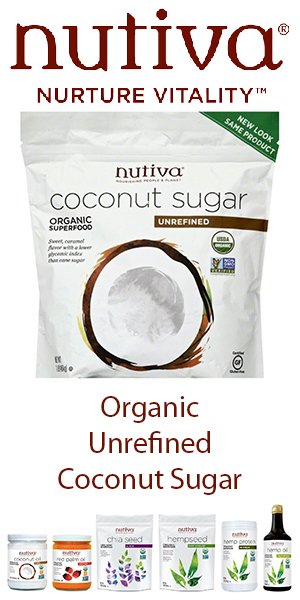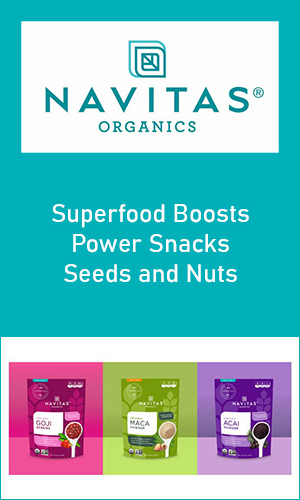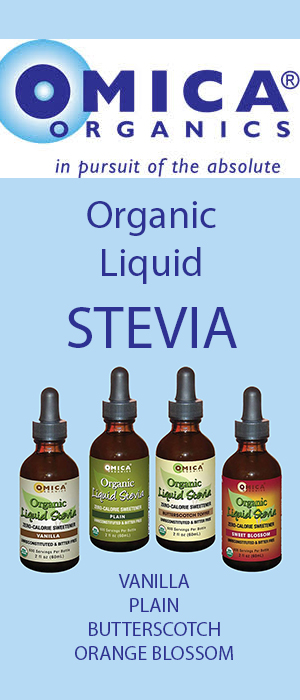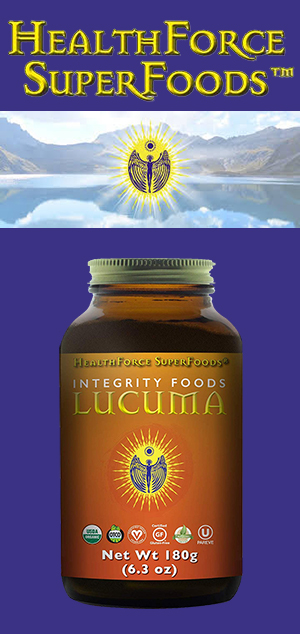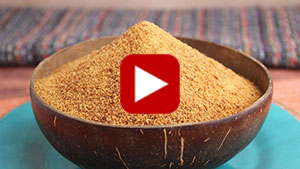- Home
- Sweeteners
- Coconut Palm Sugar
Coconut Palm Sugar, Is It a Healthier Option?
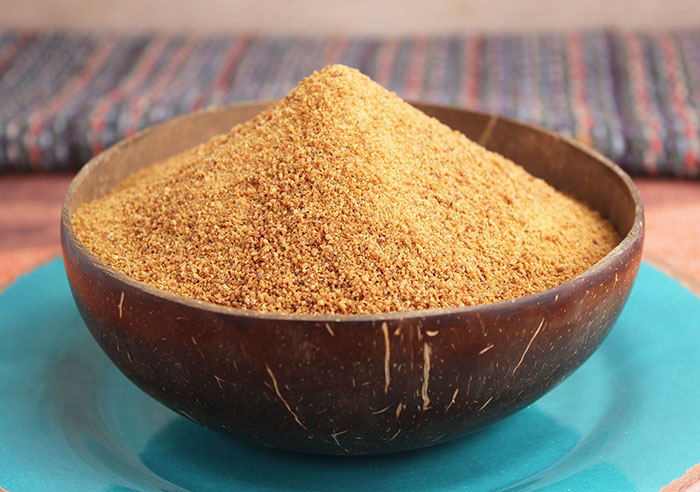
Coconut-derived products, like coconut oil, coconut flour and coconut water, have become more popular in modern times as people reach for alternative food and drink options.
If you've ever experienced living in a tropical location, you have most likely witnessed the abundant amount of coconuts the coconut palm can provide year-round.
Although the Cocos nucifera tree has likewise been utilized as a source of natural sugar for centuries by people living in tropical climate zones, the use of coconut palm sugar has only just recently become trendy as an export product.
It has in fact been highly marketed in the past several years as an unrefined "lower-glycemic" substitute for refined white table sugar.
Yet, to
date, there has not been much scientific evidence on the sugar itself
and/or its implications for human health. There are, however, some
nutritional facts we can look at to reach general conclusions about
using sugar products created from the coconut palm species.
But briefly, what exactly is coconut sugar?
What is Coconut Sugar?
Coconut sugar is made from the sap collected from the stems of coconut palm blossoms or inflorescence, NOT from the actual coconut meat or flesh as one might think. This may be one of the reasons why the initial term "coconut sugar" is now often changed on product labels to "coconut palm sugar", most likely to differentiate between the two.
This palm blossom sap, or also called "toddy", can be further processed to make traditional alcoholic beverages, coconut vinegar, coconut aminos (a soy sauce alternative) or coconut sweeteners, like sugar and syrup.
The sap is heated to condense its sugar content, producing a thick dark syrup or "coconut nectar". Coconut nectar is another product often sold as a natural sweetener and the crystallized sugar is basically the evaporated form of this liquid syrup.
Both the syrup and sugar don't taste like coconut as you may expect but are sweet with a caramel-like flavor.
Coconut palm sugar, usually a red-orange brown color, may vary in texture and coarseness. Most dehydrated sugars are not uniform in size but are mixed with fine crystals and larger granules.
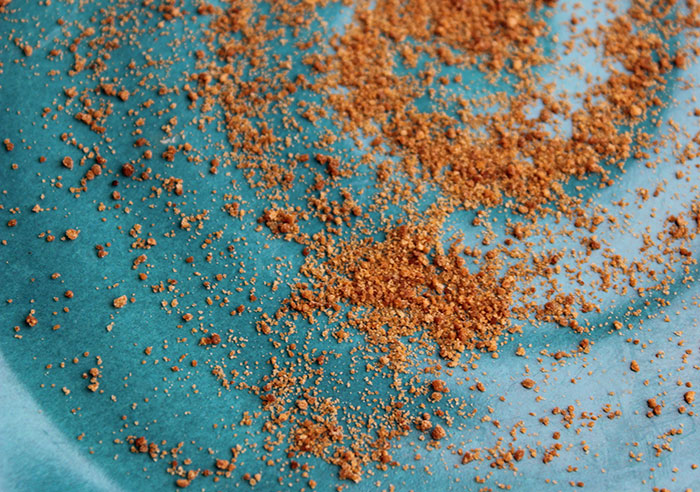
Is Coconut Sugar the Right Sweetener for You?
Of course, your own personal selection of healthier sweeteners to choose from is relative to what you are typically used to consuming.
For example, some people are looking to trade out highly refined table sugar or artificial sweeteners with less processed options like raw honey, coconut sugar, coconut nectar or maple syrup. Whereas others might be shifting to a more ketogenic protocol or low sugar diet in which other sweeteners like stevia, monk fruit, xylitol and yacon syrup might be more appropriate alternatives.
Although we are personally not big fans of using concentrated sugars, even the so called "natural" ones, in large amounts on a regular basis, we do use them when making the occasional dessert or shake recipe.
We believe it's not small quantities of sugar use that requires concern. It's when they are used on a regular basis, especially in excessive amounts, that they may become a health issue.
That being said, to help further evaluate whether coconut sugar might by a suitable choice to have in your kitchen pantry, we will provide you with some information we have gathered in our personal investigation, not necessarily from a scientific perspective.
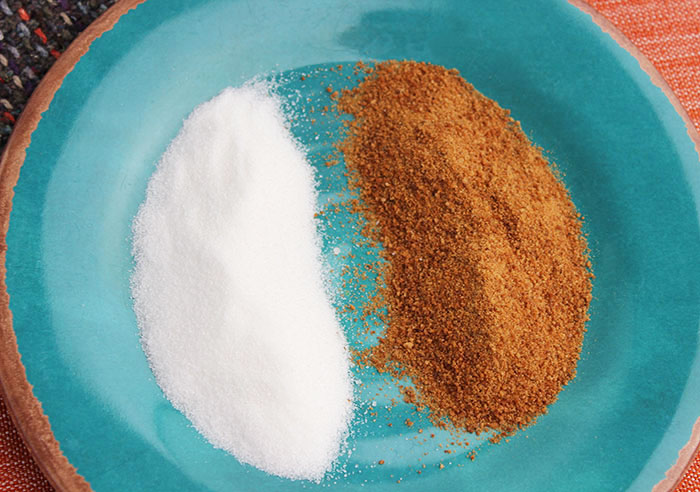
Coconut Palm Sugar Compared to Refined White Table Sugar
Coconut sugar is not as highly processed as white table sugar and retains other micronutrients as well as the main disaccharide sugar sucrose in addition to smaller amounts of glucose and fructose content. White sugar made from a very refined version of sugar cane or sugar beet is basically "pure sucrose", which gets converted by gastric juices into glucose and fructose during digestion.
If you've ever experimented with tasting straight coconut sugar and white cane sugar side by side, you may notice that coconut palm sugar is far less sweet than white sugar or even brown sugar.
This would logically indicate that it is therefore made up of other components that naturally help to reduce its sweet quality.
What About the Glycemic Index?
With pure glucose set at the GI standard value of 100, usually anything between 0-55 is considered a low glycemic sweetener. These numbers represent the rise in blood glucose two hours after a food is consumed. Low GI foods are believed to release slowly into the bloodstream rather than spike blood sugar.
According to the University of Sidney GI database, GI testing for coconut sugar is 54. (*)
However, this amount can sometimes vary depending on the brand tested. For example, Coconut Secret claims that their coconut sugar or crystals are a GI of between 35-40, which is considerably lower. Likewise, the Food and Nutrition Research Institute, also reports data that identifies coconut sugar has a mid-range GI of 35 and the syrup 39.
White table sugar is shown to have a glycemic index of about 65, which would technically classify it as a medium glycemic sweetener.
Generally, GI numbers should be taken lightly in our opinion as these amounts when testing sugars also vary depending on what other foods are consumed with them in addition to many important individual parameters.
In 2018 research, it was actually shown that "making dietary recommendations based on GI may be misleading" and one should rather focus on overall dietary qualities of foods consumed.
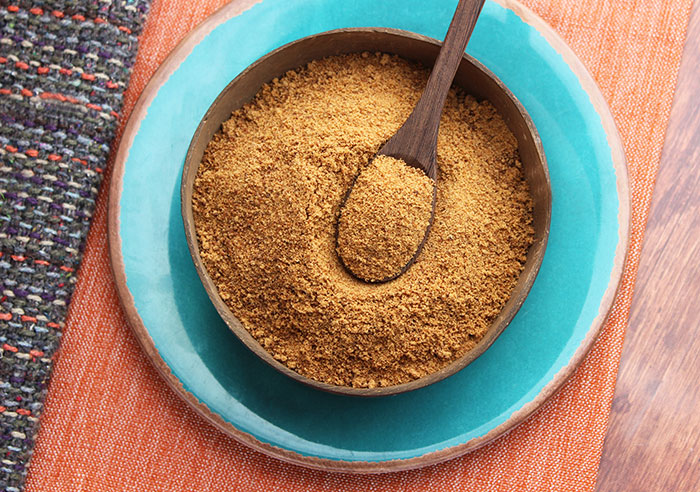
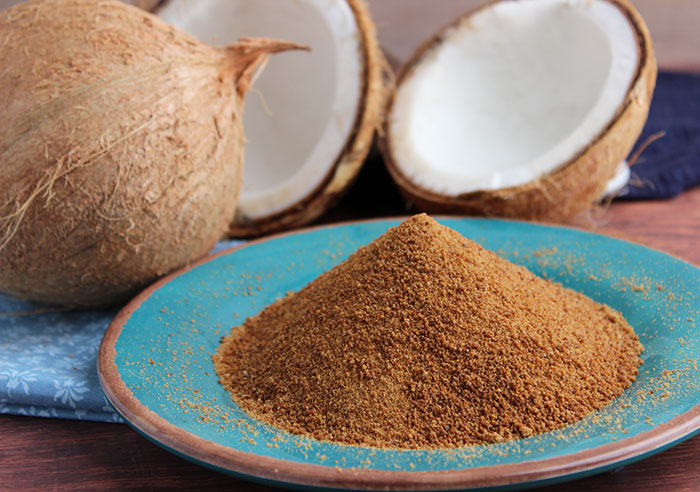
Calories in Coconut Palm Sugar
According to the USDA Food Composition database, we find that coconut sugar is about the same in calories when compared to white cane sugar. It also has roughly the same number of calories found in other sugars like brown sugar, maple sugar, Sucanat, turbinado, date sugar and palm sugar (made from another palm species).
Same Amount of Calories:
- Coconut Sugar - 1t = 15 calories / 1T = 45 calories
- White Sugar - 1t = 15 calories / 1T = 45 calories
Most coconut sugars show total calories (kcal) coming in at about 15 calories per teaspoon or 4 grams OR 45 calories per tablespoon or 12 grams.
By comparison, the same amount of white sugar is also 15 calories per teaspoon.
So, no difference in regard to numbers, but what is different from our perspective is that white sugar contains empty calories whereas coconut sugar is comprised of some micronutrient content.
About Trace Minerals and Other Micronutrients
The one obvious difference between coconut sugar and refined white table sugar, which again is pure sucrose, is the color. This is in part due to the caramelization process, but also from the presence of other substances.
The red-orange brown pigment is very similar to other minimally processed sweeteners that are actually made from cane sugar.
In the U.S., many are familiar with the brand known as Sucanat, but unrefined muscovado and raw turbinado are other types of crystallized sugar closely resembling the coconut palm-derived variety.
These sugars, though they are made from the sugar cane species, are actually similar to coconut sugar as they retain their molasses content and have higher levels of various micronutrients, especially certain minerals, as well as a stronger flavor and predominant color.
The micronutrients in coconut palm sugar and these types of cane sugar's are also comparable to other less processed sweeteners like maple sugar, date sugar and other varieties of palm sugar and are likewise viewed to be a healthier choice over refined white sugar.
In many regards, molasses can also be likened to that of coconut nectar. One is from the juice of the sugar cane (sometimes sugar beet) and the other is made from the sap of coconut stem blossoms. Unlike coconut nectar which only requires a short heating or evaporation process, molasses can go through several boilings for different grades, such as the thick dark syrup called "blackstrap molasses", often valued for its higher nutrient and mineral profile.:
In the previously mentioned research, it also shows that the main minerals found in the sap and apparently preserved within the crystallized sugar are:
- Iron
- Zinc
- Calcium
- Potassium
- Sodium
These trace quantities are of course not going to satisfy your daily values for these minerals, but they may help to slow the absorption of the sugar into the bloodstream after intake.
Different types of coconut sugar may differ in sweetness, color, flavor and nutritional makeup due to the compositional differences of the fresh sap which are dependent on variety, maturity of inflorescence and soil fertility. (Source)
One organic coconut sugar brand listing on the USDA Food Composition database did in fact show that 1 teaspoon contained 2.16mg iron, 36mg potassium and 10mg calcium when tested.
In another organic brand, USDA amounts showed 0.18mg iron, 65mg potassium, 0.15mg zinc and no amounts for calcium.
Coconut Palm Sugar, A Source of Inulin
Coconut palm sugar is also claimed in the mentioned study to contain some polyphenol, flavonoids, anthocyanidin, antioxidant content and is shown to be relatively high in inulin content especially compared to coconut nectar.
Inulins are a source of prebiotic fiber which can help to feed healthy gut flora and may also be partly responsible for slowing the rate of sugar absorption.
In one published study, coconut sap sugar as well as the syrup was analyzed for its nutrient composition and found to have "significant amounts of inulin and propionate [a metabolite of inulin]".
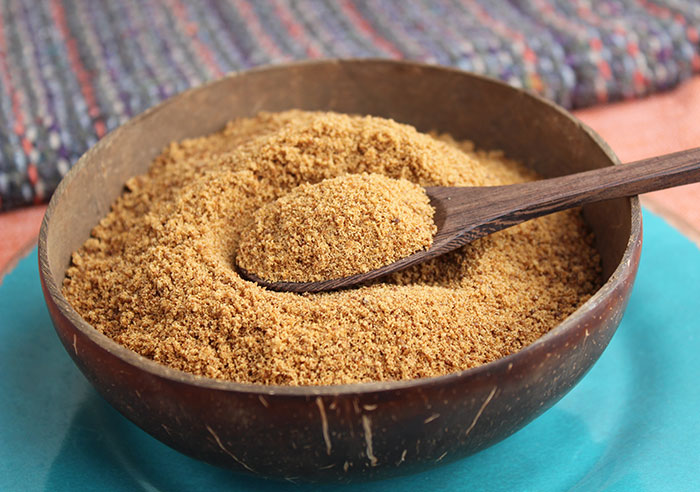
How to Use
Generally, we feel that condensed sweeteners should be used in moderation within a health promoting diet and lifestyle routine.
If you are someone who happens to have a sweet tooth, coconut palm sugar can be an upgrade from white sugar and a definite improvement over artificial sweeteners and of course the dreaded high fructose corn syrup.
For those used to very sweet foods and drinks, it may take some getting used to coconut sugar as an alternative sweetener.
It can be used like other crystallized sugars in desserts, beverages and most recipes that call for sugar.
Although some say you can use it in a one to one ratio to white table sugar, we have found a little more coconut sugar is often needed to produce the same amount of sweetness.
Precautions:
Coconut palm sugar should be avoided by those with candida overgrowth or individuals on a low-sugar diet. Seek the advice of your dietitian or nutritionist when adding coconut sugar to your diet if you are pregnant, nursing, taking prescribed medications or have a serious medical condition.
Shop Related Products (About Affiliates & Amazon Associate Paid Links)
Affiliate Disclaimer: This section contains affiliate product links. If you make a purchase through our recommended links, we receive a small commission at no additional cost to you. Thanks for the support.
